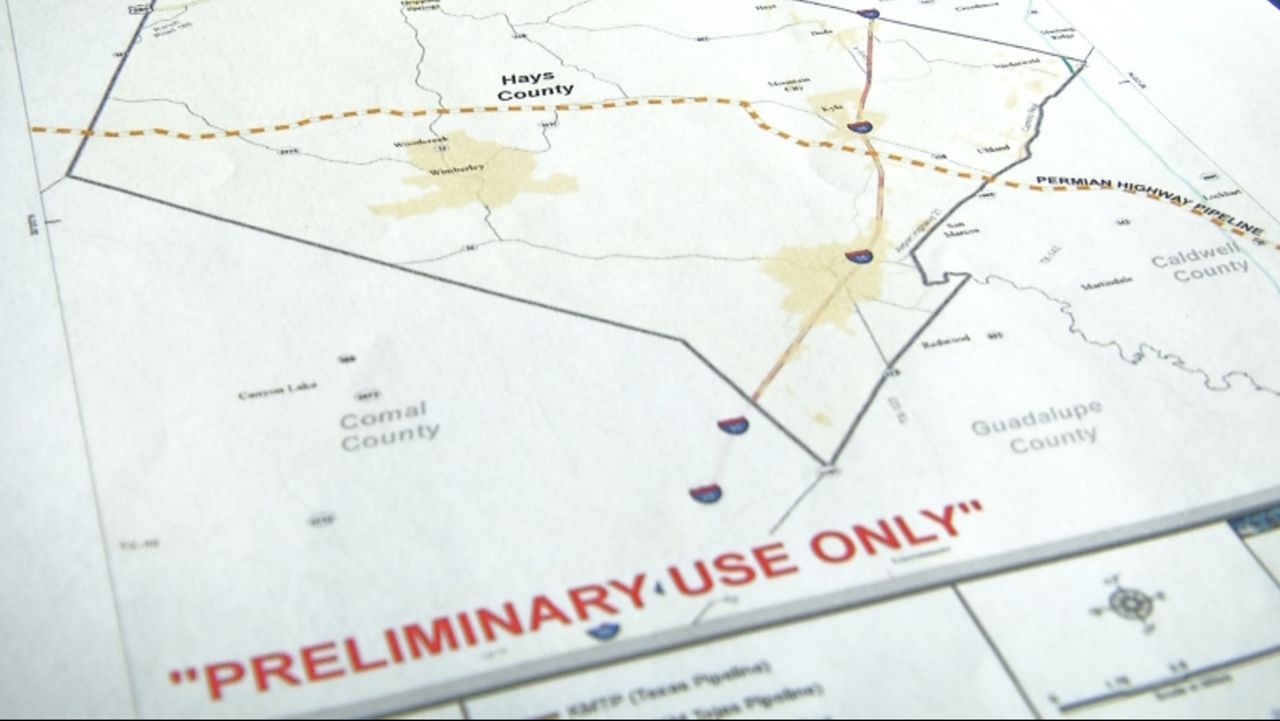AUSTIN, Texas -- The quest to transfer natural gas from one end of Texas to the other continues, but a coalition of Central Texas cities and environmental groups is threatening a new lawsuit to try to stop Kinder Morgan's Permian Highway Pipeline project. This time they're taking it to the federal government.
- Coalition threatens lawsuit over Kinder Morgan gas pipeline
- Coalition members cite environmental concerns
- Pipeline slated to be operational in 2021
Blayne Stansberry defends this drinking water source as the president of the Barton Springs/Edwards Aquifer Conservation District. She’s worried the aquifer below the springs is threatened by a pending pipeline project.
Allen Fore with Kinder Morgan says a leak is unlikely.
"That product goes into the air, straight up. It's lighter than air, it can't go down. It goes up," said Fore.
But Stansberry says liquid condensation can form on the pipeline. Her organization along with one other, as well the cities of Austin, Kyle and San Marcos, sent a letter of intent to file a federal lawsuit.
They issued the notice to the United States Fish and Wildlife Service and U.S. Army Corps of Engineers.The letter says the pipeline project will cut through the habitat of several endangered species. Stansberry says this latest move is aimed at ultimately protecting a water source that she believes could be threatened.
"It covers south Travis County, a little portion of Caldwell and eastern Hays County," said Stansberry.
Fore says Kinder Morgan is complying with all state laws and permitting processes. But state laws are far more lax when it comes to projects like this.
"Rather than suing about it, the proper recourse for that is your elected officials. In fact, the state of Texas, the legislature had an opportunity to change the laws in the last session. They had a whole host of bills. They chose not to do that," said Fore.
He's not worried about the latest attempt to slow the pipeline's progress, but Stansberry is worried.
"If liquids were to leak out in an aquifer, people are going to be drinking that," said Stansberry.
She says she'll continue working with attorneys to make sure her water source is protected.
The pipeline will run from the Permian basin to the coast. It’ll be about 430 miles long and cost $2 billion to construct. The pipeline is set to be up and running in 2021 rather than 2020 like originally planned.



